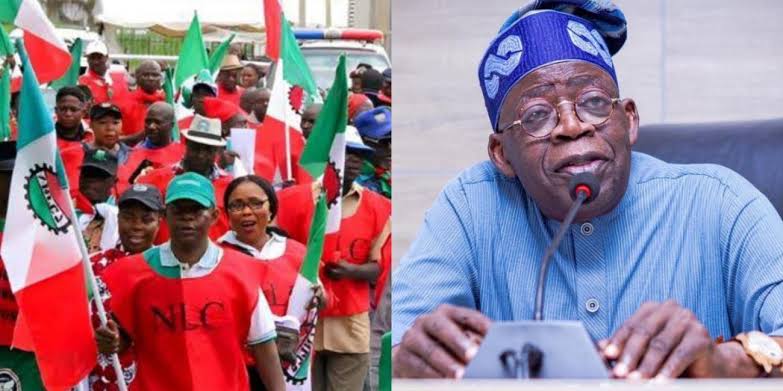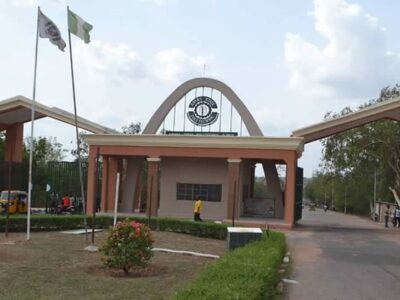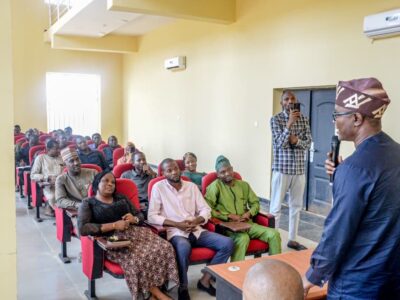Some Nigerians, including economic experts, civil servants, policy analysts and members of the civil society, have cautioned President Bola Ahmed Tinubu against using the cash-transfer model for the N500 billion palliatives aimed at cushioning the effects of fuel subsidy removal.
President Tinubu had Wednesday asked the House of Representatives to alter the 2022 Supplementary Appropriation Act to make funds available for the palliatives.
In his letter to Speaker of the House, Tajudeen Abbas, the president said: “I write to request for the amendment of the 2022 supplementary Appropriation Act.
“The request became necessary to provide necessary palliatives to mitigate the effects of the removal of fuel subsidy on Nigerians.
“Thus, the sum of N500 billion has been extracted from the 2022 supplementary appropriation act of N819.536 billion for the provisions of palliatives to cushion the effects of subsidy removal. I seek the expeditious consideration of this request.”
And not long after that, the president also received in audience the Class of 1999 Governors during which he hinted that the federal government would ensure a full-proof social security structure that won’t be compromised, especially in cash-transfer.
“Please tell the people to be a little patient. The palliative is coming. I am doing the arithmetic. I don’t want the cash-transfer to fall into the wrong hands. I know it pinches and it is difficult. In the end, we will rejoice in the prosperity of our country,” the president had told his guests.
Nigerians react
Weighing in on the president’s position in a chat with Blueprint Wednesday, Professor of Finance and Capital Market, Uche Uwaleke, urged the federal government to establish skills acquisition centres in local government councils across the country, saying this would create sustainable jobs across the country.
He said: “Consistent with the principle of maximum social benefits in public expenditure, one way, in my view, to ensure this money reaches the grassroots, is to divide it by 774 which translates to about N1.4 billion and transfer this sum to each local government.
“An optimal way to ameliorate suffering is via sustainable jobs. So, this money can be utilised as initial capital to establish massive skill acquisition centres in every LGA. The construction of these centres will generate huge job opportunities in the LGAs and help to reverse rural-urban migration. The management of the funds will be done by the communities themselves using traditional and religious institutions.
“In the area of mass transit schemes, the government should partner the private sector to address the challenge.”
While harping on non-cash palliatives, he said: “The request by the President to the National Assembly to utilize N500 billion for palliatives to cushion the impact of the fuel subsidy removal is in order and I urge the National Assembly to give it favourable consideration as speedily as possible.
“Although the nature of the palliatives was not indicated, as much as possible, the government should look into the direction of non-cash palliatives in the utilisation of such funds.
“Reports say Nigeria has secured 800 million US dollars from the World Bank as a soft loan to cushion the impact of subsidy removal (expected to be distributed as cash to about 10 million households).
“If we add this N500 billion to the N600 billion (assuming I&E average rate of N750 applied to the World Bank’s facility), that should give N1.1 trillion,” he said.
Need for transparency
In the same vein, a political economist, Adefolarin Olamilekan, urged the government to be transparent in how money allocated to palliative projects would be spent.
Adefolarin told one of our reporters that the government must be pragmatic in the way it handles the palliative issue.
“However, it is important we encourage the government to also take pragmatic steps in ensuring accountability on every kobo spent in the name of palliative to Nigerians.
“Again, we also advise the government to avoid any cosmetic arrangements that have led to wastage in resources and an event that is nothing but misappropriation by disguise in government quarters.
“The Tinubu government must prioritize a bottom approach disbursement of any form palliative whether it is cash or kind.
Nevertheless, we expect nothing short of transparent, acceptable and documentation of transactions of the amount involved at all levels of disbursement,” he said.
While commending President Tinubu for looking inwards to raise the N500 billion from the leftover of the 2022 budget, he said: “More so, the ritual of not ensuring compliance with timely release of funds, monitoring of released funds and poor oversight by the National Assembly is a dangerous trend to the budget cycle. For us, this is core challenge to public finance.
“Having said that, we anticipate a robust disbursement and impact from the palliative gesture of the federal government to Nigerians,” he explained.
CISLAC
Also, Executive Director Civil Society Legislative Advocacy Centre (CISLAC) Auwal Musa Rafsanjani urged the federal government to “come up with proper framework of implementing the palliative, so that the real beneficiaries can benefit from it and not the middle level and people who will just corner what is due to the ordinary persons.”
Rafsanjani said there must be a proper framework on how this palliative should be shared across the 36 states in the country, including the local governments.
The CISLAC boss said: “Let the government hand over the money to the local governments and each of them should set up a committee that will consist of community leaders, civil society groups, religious leaders and political leaders.
“For the money to reach the common man who is at the receiving end, the money should be handled only by these officials who will form a committee that consists of credible patriotic Nigerians,” he said.
‘Invest in gas-driven transport system’
In his own response, a public affairs analyst and development consultant, Jide Ojo, said: “I feel what is needed to be done is exempting giving people cash but we can look at the Comprised Natural Gas (CNG) transportation buses because transportation takes the chunk of people’s income.
“Government can also facilitate the assembling of CNG electrical generators for companies. They can extend that to the conversion of generators through the Ministry of Science and Technology.
“All these won’t make people spend so much in fueling their generators. It will ease the cost of doing business. It is even cheaper and it will help the cost of reducing commuting and haulage.
“There is a need to train technicians that can help people to convert their vehicles from PMS to Gas or electricity.
“Also, there is a need to put in place investment infrastructure that will impact on the lives of average citizens rather than give people cash on a sustainable basis.
“Healthcare delivery systems, Scholarships for the children of the vulnerable, we can also use part of the money to fix the infrastructural deficit across all Schools rather than build new ones.
“All these should be targeted at the local based interventions because that is where the masses live. These will impact primarily on the masses.
“There must be transparency and accountability and the involvement of the media, civil society groups, MDAs, labour unions and the National Assembly to form and implement committees and disbursement of the funds,” he said.
…Tinubu shouldn’t take Nigerians for a ride – ACSN
Also rejecting President Tinubu’s move, the Association of Senior Civil Servants of Nigeria (ASCN) wondered why the federal government would not allow the tripartite committee put in place to conclude her work.
The ASCN’ position was made known its president, Comrade Tommy Etim, in Abuja Thursday.
He said: “It is unfortunate that we are having people in power that do not understand how the economy works. The Presidential Committee set up to look at the issues surrounding the removal of oil subsidy has not concluded the report. The Committee has not come out with collective bargaining agreement with the organized labour and government has gone ahead to decide what to give to what they tagged 12 million poor Nigerians.
“How do they determine the poor 12 million household in Nigeria? What parameter will the government use to distribute the money? Government should stop acting on the felt need, rather it act on the actual needs of the people.
“As far as we are concerned, this move is economic somersault. Because if actually they mean well for the economy, they will think of what to put into the economy that will bring about a positive impact on the economy, not to distribute money.
“Who told him that giving N8, 000 to few households in Nigeria will scratch the economic hardship those households face let alone make any meaningful impact. The last administration engaged in this same scam and even came up with what they called school feeding programs and fed even the ‘children of the families’ even when they were in holiday.”
“I think it’s high time this government understood that Nigerians are not fools. How can you just wake up and just saying what does not just make meaning to hundreds if millions of Nigerians as if the people you are dishing such stinking statements to do not have sense nor reasons.
“How can you say you want to give N8, 000 to 12 million families monthly for six months because of the removal of subsidies, and you are talking about 500 billion naira. That is not the problem of Nigerians now. The problem of Nigerians is coming up with what will solve the socio-economic economic problems.
“Is it with the hyper inflation that you are telling us you will give somebody N8,000? What does N8, 000 worth in the market today? Did the president know how much a cup of Gari is sold, did he know how much a loaf of bread is sold? Honestly speaking this is annoying.
“The president and his team should not be taking us for a ride. He should look at other clime and emulate how things are being done to move a country forward and better the living condition of the Nigerians.
“If you start sharing money without looking at the problem on ground, is that the solution? In economic development, you don’t act on felt need because that is not what people want.
“Instead of government to think of how to put the necessary infrastructure on ground to solve the problem, they are unfortunately thinking that distributing money to people will solve the problem. How on earth can that solve the problem when workers, retirees are wallowing in poverty? No, this can’t work. This move is a no for Nigerian workers.
“Again, the Presidential Committee that was set up by the President himself to look at what to do to solve the impact of the removal of oil subsidy work is still in progress. They have not concluded the report. So where is he coming from? It therefore means that he is not planning to take the outcome of the committee’s report seriously.
“He should have allowed the committee to finish their work and submit the report, then look at what is agreed upon. This his approach will not work. He should know it now. Those close to him should advise him because this way he wants to go will not be fruitful at all.
“So the organised labour frowns at this move.
We call on the president to wait till for the outcome of the discussion of the committee he set up to work before he commences any form of implementation. Otherwise, his plans will not work if the right thing is not done,” the senior civil servants further contended. (Blueprint)










Comments